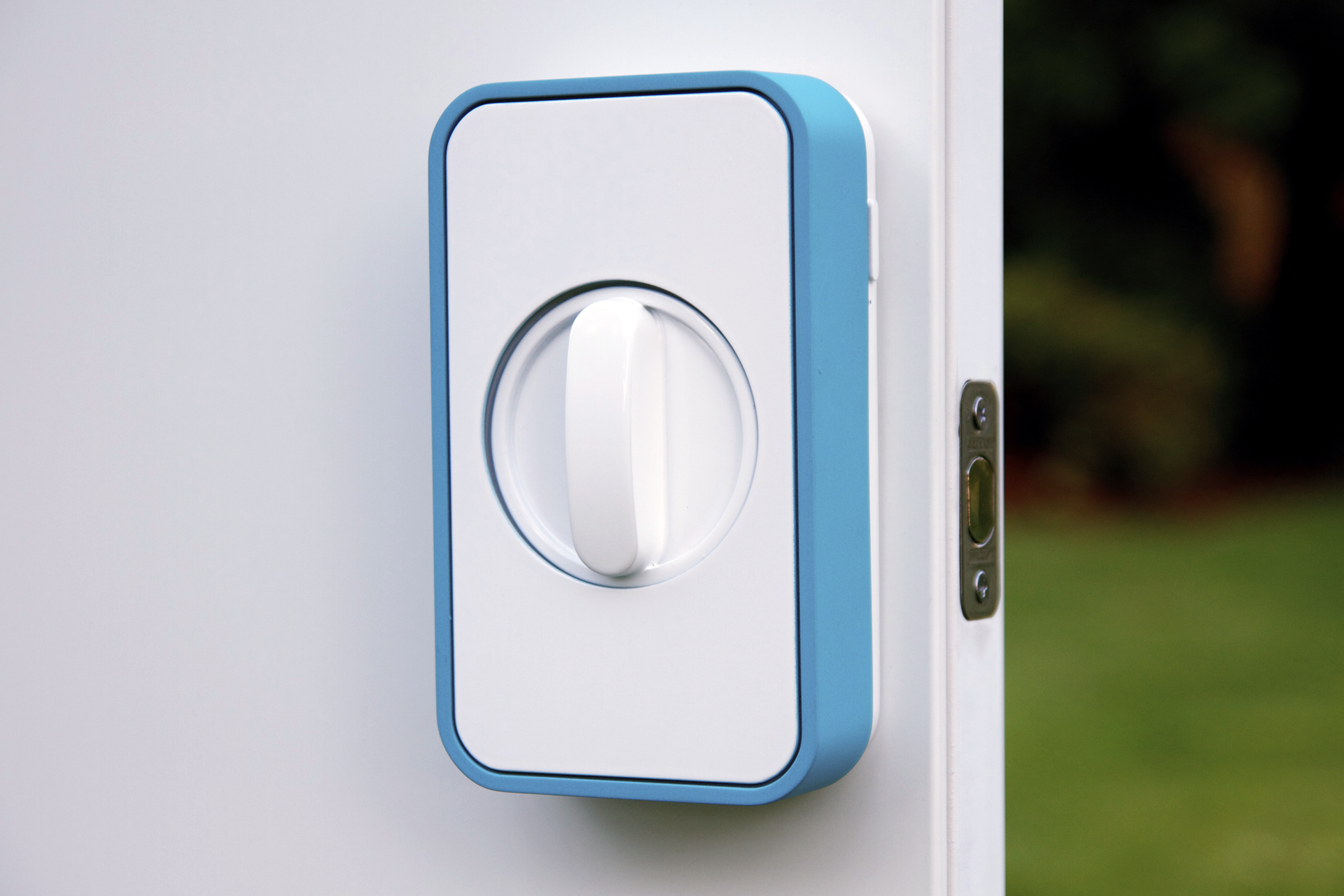Start-up unlocks standard deadbolts with smart phones


The door lock has been upgraded. Apigy, a crowd-funded start-up, is now accepting preorders for “Lockitron,” a gadget that transforms standard deadbolts into remote keyless locking systems that are controlled by smartphones or SMS enabled devices.
The company unveiled Lockitron this week, and hopes to sell 1,000 units in its initial production run. The device retails for US$149, and the company has raised over 1.3 million to develop its products. Orders may ship as soon as next March if demand meets or exceeds Apigy's expectations.
Lockitron installs over standard locks, and is connected to the Internet through Wi-Fi over an encrypted connection. It can be accessed through Android or iOS apps as well as through any browser; near field communications is enabled, so your very presence can unlock the door.
It also senses when someone is knocking on the door, and sends alerts when there's activity. See here:
Apigy has also taken the unusual step of permitting customers to tinker with its product. The Lockitron contains a specialized embedded processor that can be customized, so a programmer can extend its capabilities – e.g. enabling a digital piano to lock or unlock the door using the correct notes.
Don’t fret about the device failing - your keys will still work. Lockitron can also be configured to log when the door is manually unlocked, so your significant other will know about when you sneak out for that late night Big Mac. It uses standard batteries.
The entire concept is about adding convenience, and while it’s high tech, Lockitron doesn’t necessarily make your lock any better. A standard cordless drill can easily remove many deadbolts. Some doors and locks are much more secure than others.
This post was originally published on Smartplanet.com